Robert tries to understand Lena through fire and his parents
Who by Fire: Chapter 41 (Audio and prose)
Note: Update: Robert tries to understand Lena and what he’s learned …
You can start reading here or anywhere, then go back. See Table of Contents. Come in the middle? Robert is the narrator who discovers after his wife Lena has died that she had a lover, Isaac. Evan is Isaac’s wife. Robert is on a search for how he lost Lena: He’s creating the story through memory, invention and a search for the truth and his role in what happened—and by stalking Isaac.
My Father and Mother
My father and mother are suffocating.
My father in the wheelchair has the rough-hewn hands of a longtime farmer and the manner of a man who gets things done and can’t be bothered with those who don’t. He can’t roll the wheels of his chair or assist to be lifted from the chair to bath seat or toilet. Yet, the manner remains in the way he brings his fork to his mouth, in the angle of his withered elbow on the arm of the chair. He is unmovable—and confused, as he admits—but what he can move he moves in this lifelong manner of purpose, a paradox that doesn’t surprise me because, although I know his confusion comes from the Parkinson’s disease in his body and his mind, I remember how he was quick to anger with a force of purpose that was hardly merited by the cause or whatever he said was the cause. If my mother had done something wrong in the household books, left out the cost of my scouting uniform one year, added a column wrong another—the mistakes were rare—he’d ridicule her: “I manage the farm. All I ask is that you manage the household account. Is that too hard for you?” Now he manages nothing but moves with purpose. It’s no paradox.
When my father and I watched the barn burn, this controlled fire, one of the fireman said, “We learn to burn here. I don’t think we learn to save here.” My father said, “Nothing worth saving.” The fireman was talking about the real trouble with fire—the tactics the man who fights to save needs to use: listen for the whistling sounds that tell him a flashover is coming, watch for the blue flames at high levels or dancing flames like ghosts around the smoke, all the signals of extreme danger. The firemen couldn’t learn these signals because they were not inside the fire. Only inside the fire can the signals be seen and heard. Firemen who learn have gambled to do so.
A sixty-seven-year-old man from Murrells Inlet, South Carolina, tried to save a seventy-two-year-old woman from suffocation. Like my father she was confined, unable to move when fire broke out in the back of the house. With the fire getting worse, he carried the woman from her bed and was able to drag her to the hallway, but a flashover made saving her impossible. They both suffocated.
When my father and I watched the fire of the corn bin the firefighters didn’t concern themselves with flashovers. The word isn’t particularly precise because firefighters use it broadly, but in the case of the man and the woman, I suspect it was like an arc of fire from the ceiling that enclosed them, like a horrific rainbow of flame that kept them inside, not burning, but blocked.
I use the word rainbow because rainbows happen with the sun at your back. The man didn’t see the arc coming the way we don’t see a rainbow if we look into its source to find it. They were inside the conflagration though neither burned to death. Perhaps they weren’t burnt at all when the firefighters got to them.
The man, who tried to save the woman and who died doing so, was caught.
This isn’t how Lena uses the word caught, or is it? I ask because I know that I was married to a woman who believed she was trapped, that she was suffocating in the marriage, that she was seeking air. Isaac, of course, was not the answer. And you may think me too generous towards her in that I pretend to understand her, try to tell her side of what is at best an ordinary story of adultery, but I suspect you don’t understand her and so any pretense I have for presuming that I could explain her is the weakest part of my story. You may at this point be thinking she might have simply divorced me, chosen to live alone. What I know now is that was her path but she got caught, before she could follow it. I don’t treat her all that generously. I am no hero. That I know. What is she? I ask. A trapped woman, a harlot (what she thinks of herself). Whatever she is, what would have changed if I’d fought for her, taken a chance instead of taking cover?
I, obsessively, continue to look for the answer in the barn burn.
My mother didn’t bother to go see it. She didn’t need to see it because she thinks she understands controlled fire without seeing it. She is wrong. You have to see the bin burn, stand close enough, feel the heat, watch the flames rise above the smoke.
My mother believes she is safe. She believes the fire was safe and therefore not of great interest. Her safety is built on what she knows, not on what she doesn’t know. I have seen myself, and my inability to make Lena clear or at best sympathetic, in my mother’s nature.
She’s proud of her record of family finances. It lists every dollar they spent, not including the farm budget, which my father kept in his head or kept separately: $40.59 for groceries, $2 for my father’s carton of cigarettes, $5 for his legion dues, $3.05 for my jeans, $4.87 for her sheet music (Schmoller M. Music, the store}, $.50 a week for my allowance, $1.25 for her hair rinse at the beauty shop, $1.25 for my father’s haircut, all in July 1960. She gave this ledger to me as a memento. These are the kinds of gifts she gives now with great ceremony and difficulty, releasing the offering from her hand as if it were so valuable perhaps she should keep it. This process of giving while withholding is, I think, to show me how little money they had, something she’d never say but that is important to her because she now has money, more than she needs. I know that her father bought my father’s first farm and that she still owns it. He did well with that farm and the land that followed. Her name is on all the land he bought with his name. Her name only is on the first piece of land.
When she shows the slides of photos from my childhood, I am serious at six, seven and eight. I didn’t smile because she didn’t smile. I don’t have that easy wide mouth of the Italian/Moroccan in Positano.
The slides are orderly in a disorderly manner, unlike my mother and her ways as can be seen from the ledger. But there is purpose here too and her own form of safety. While watching family scenes on the lawn in front of the big house that rises up like a steeple, a slide of her trip to England will appear, usually a museum that I can’t name but that she can and does.
The way my mother didn’t go to the fire, my father didn’t go on the trip to England. She went with a group though that’s not the way she likes to tell it. She likes to tell about the trip to England as if she were alone the way she was briefly alone on her trip to New York after she’d met my father, after she knew she would marry him. She took a month long fling in New York as a career-girl and always reminds me of the wonder of that trip. She lived in the YWCA and worked as a secretary nearby, but returned to her parents’ home a month later to marry my father before he went to war, a fighter pilot, a man she knew she might lose—perhaps the idyll of young widowhood appealed to her.
The idyll of the relatively young widower does not appeal to me.
It is not possible to visit my parents without his talk of his close scrapes with death in his P-51 Mustang, the plane that he named for her—the Gloria, the word glory inside her name—or without her talk of her foreshortened trip to New York. She wants me to know what she gave up for my father, for me, for the farm.
I know that the space between my father and mother in the bed is a conflagration not to be crossed. To cross it would be to risk and they’ve long ago given up taking such chances. This is not controlled fire. This is a conflagration and they are far from safe. I see that she never touches him. I see that he never brushes into her shoulder on the way to the car. He doesn’t take her hand. She doesn’t take his. Her arm doesn’t brush his when she sets his chicken casserole serving before him.
When I see in my mind’s eye the barn alight with fire, I see the flashovers, like horrid rainbows, arced across the inside of the building before the walls fell in. Like the firemen at the burn, I had yet to learn how to listen for them. If only I had learned in time.▵
Table of Contents
Coming next: Chapter 42: “Glass”
Only Connect, all sections, and this serial novel come from my heart and soul—and ten years of research. I know the saying ‘time is money’: I couldn’t help but pursue this story. If you have already gone paid, my heart goes out to you with my thanks.
Love,




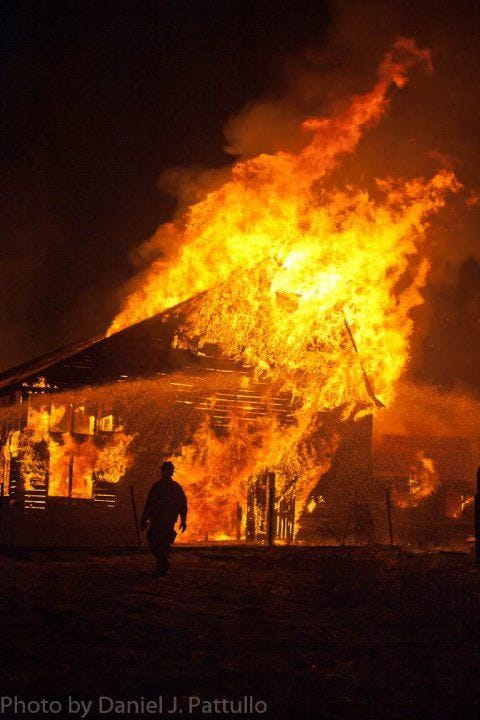
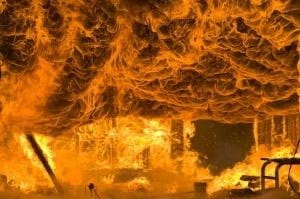
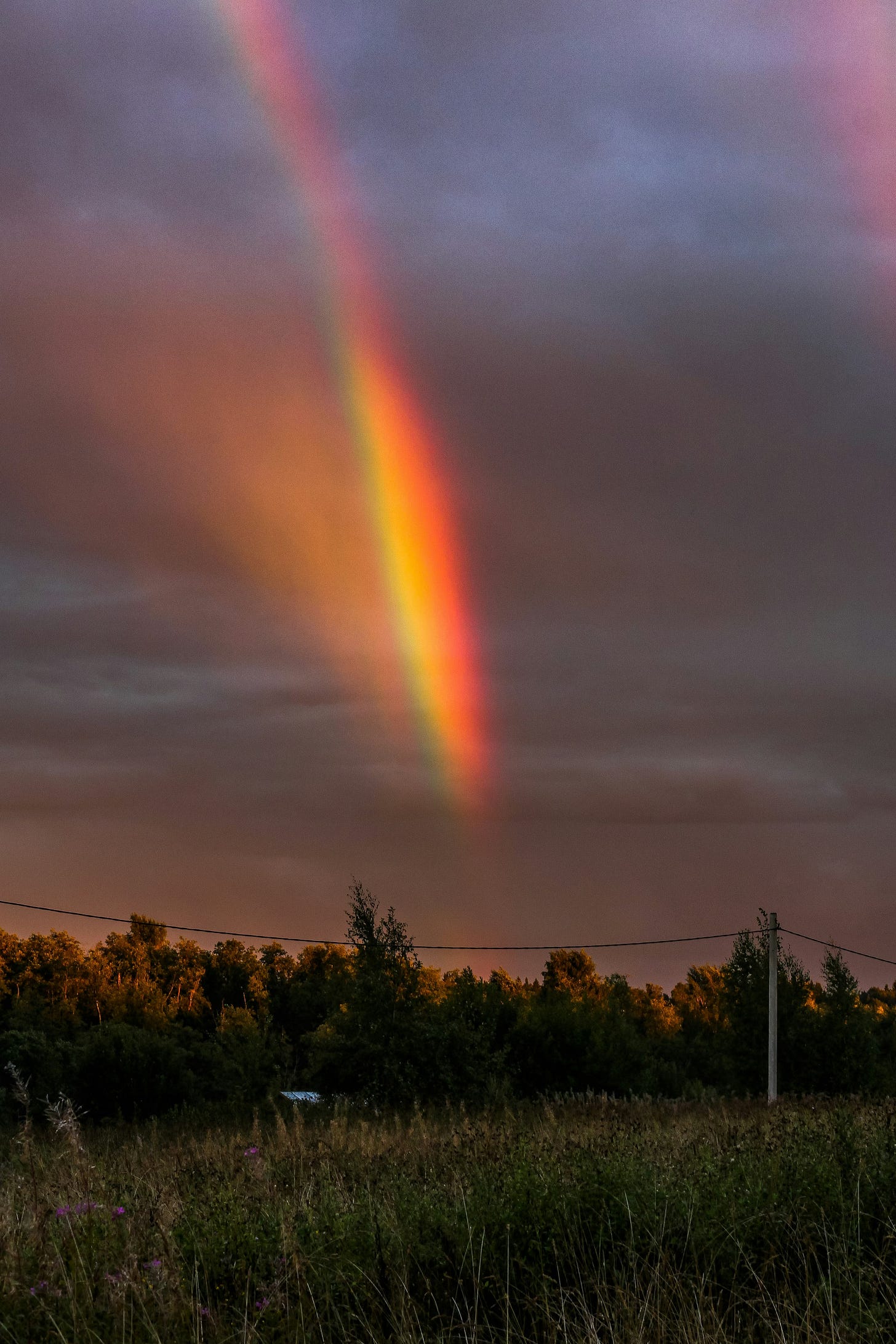
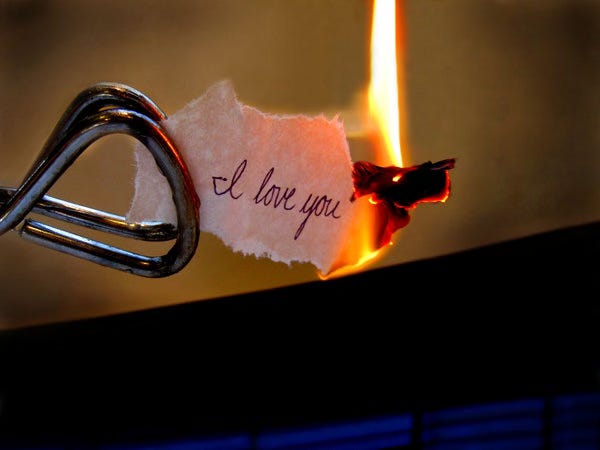
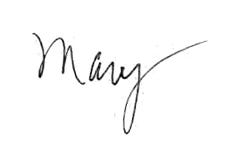
I had to read this chapter twice to even begin to comprehend the fullness of it. It brought home to me, much, in the same way, Rachel Cusk's OUTLINE Trilogy did, this notion of how we come to know ourselves through the lives and stories of others and this being a greater comment on the form of 'the novel' itself. Why it must exist. And then, I sat stunned considering, once again, the title of your novel, WHO BY FIRE. and the burning barn, the caught couple, and the flashover. We come to know Lena (and the others) by fire--by standing and bearing full witness to the barn burn. And I thought, Holy Cats, Mary. You have done something remarkable. ✨💜
Beautiful. I loved the description of Robert's father and his parents' own emotional conflagration. The return of the fire motif here feels almost Wagnerian in its force.